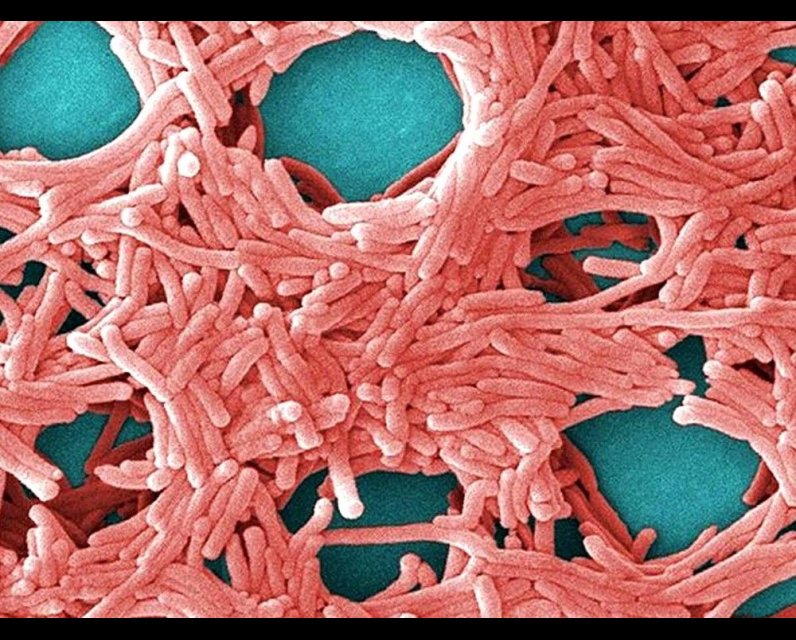A Legionnaires’ disease outbreak has killed someone in Ontario. Here’s what you need to know

An outbreak of Legionnaires’ disease has struck London, Ont., with 43 confirmed cases and one fatality so far this year. The outbreak is mainly concentrated in a six kilometre radius in the city’s southeast neighbourhoods.
As of right now the source of the outbreak is still being investigated, but officials are telling people to be careful, and to regularly maintain and clean their cooling equipment to prevent further outbreaks. Here’s what you need to know about Legionnaires’ disease and how it spreads.
What is Legionnaires’ disease?Legionnaires’ disease is a serious respiratory illness that can result in a serious chest infection or pneumonia. It is caused by a type of bacteria that lives in water called Legionella. Most people who catch Legionnaires’ disease breathe in the bacteria from water, and it is more common in warmer weather.
What are the symptoms of Legionnaires’ disease?The Public Health Agency of Canada (PHAC) says that Legionnaires’ disease symptoms usually develop two to 14 days after exposure to Legionella bacteria, and can last several months .The symptoms are similar to pneumonia.
They include: cough, fever, headache, muscle aches and shortness of breath. Other symptoms, like confusion, diarrhea or nausea can also occur, according to the U.S. Centre for Disease Control and Prevention (CDC).
Who’s most at risk?Most people exposed to the bacteria do not get sick, but there are those who are at a higher risk.Those most at risk include the elderly, smokers, individuals with chronic lung or kidney disease, diabetes, or weakened immune systems.
According to PHAC, people in certain occupations — such as those who do maintenance work on large air conditioning systems — may also be at an increased risk.
How is it treated?The treatment for Legionnaires’ disease is done through antibiotics, and most cases recover. The Canadian Centre for Occupational Health and Safety (CCOHS) says that earlier treatment helps to reduce the chance of serious complications.
How does it spread?Legionella bacteria are found in natural water sources such as lakes and rivers. Generally, the amount of this bacteria in these environments doesn’t lead to disease. However, when the bacteria gets into building water systems and grows, it poses a risk to one’s health.
The bacteria may grow due to certain conditions. According to PHAC, these are “stagnant water, warm water temperature (20 to 50 degrees Celsius), or the presence of biofilm, scale, and sediment.” As a result, the bacteria could be found in cooling towers, humidifiers, plumbing systems, or hot tubs.
When the contaminated water is released into the air, through mist or droplets, the bacteria becomes airborne and people may inhale it, resulting in infection.
The CDC says that Legionnaires’ disease is not spread from person to person.
How can Legionnaires’ disease be prevented?In public areas and buildings, owners of cooling towers or centrally installed misters or humidifiers should follow manufacturers’ instructions regarding maintenance to prevent the growth of the bacteria. CCOHS says that, “cooling towers and evaporative condensers should be inspected and thoroughly cleaned at least once a year.”
At home, PHAC says individuals can “reduce the risks by proper maintenance of mist-producing devices, such as shower heads, hot tubs, whirlpool bathtubs and humidifiers.” It is important to disinfect these devices regularly, following the manufacturer’s instructions.
With warmer weather creating ideal conditions for Legionella to thrive, simple steps like maintaining water systems can go a long way in keeping communities safe.
What is being done in London?In a press release, the Middlesex-London Health Unit said they are working with Public Health Ontario “to investigate and identify the source of the outbreak.” Environmental sampling is being done, but because Legionella can be found in different places, this might take time. In the meantime, they ask that the public clean and maintain their cooling equipment.
Our website is the place for the latest breaking news, exclusive scoops, longreads and provocative commentary. Please bookmark nationalpost.com and sign up for our daily newsletter, Posted, here.



Comments
Be the first to comment